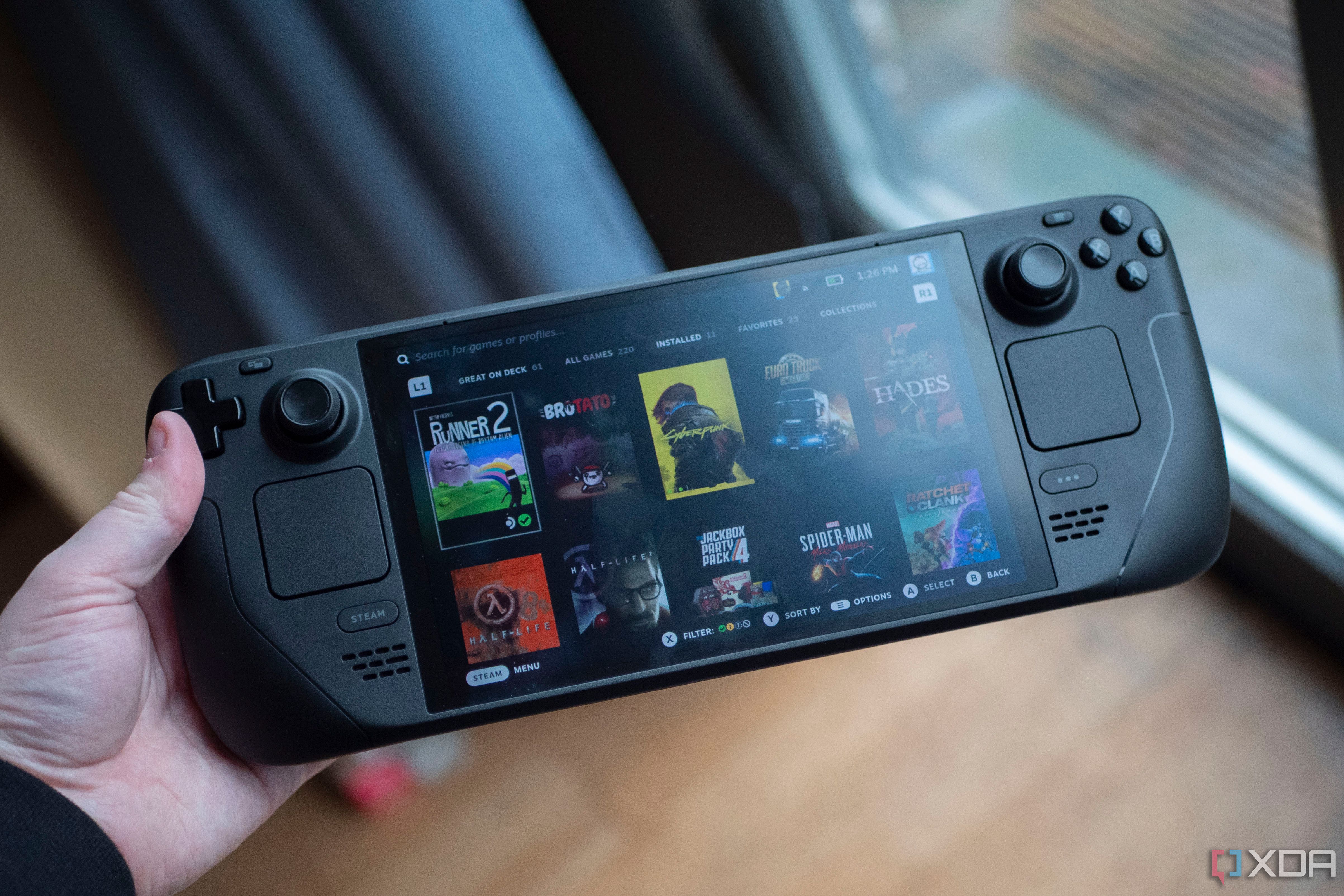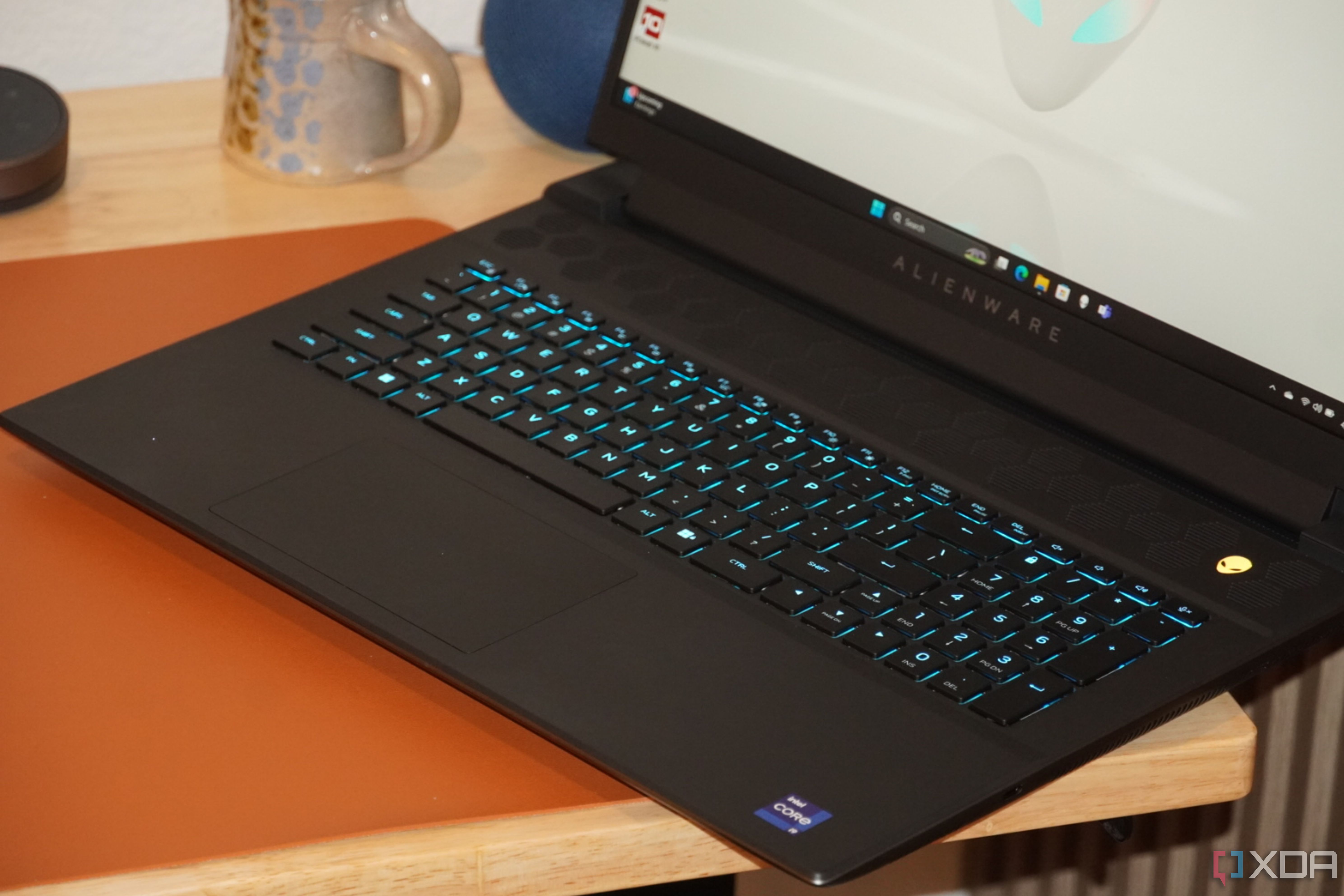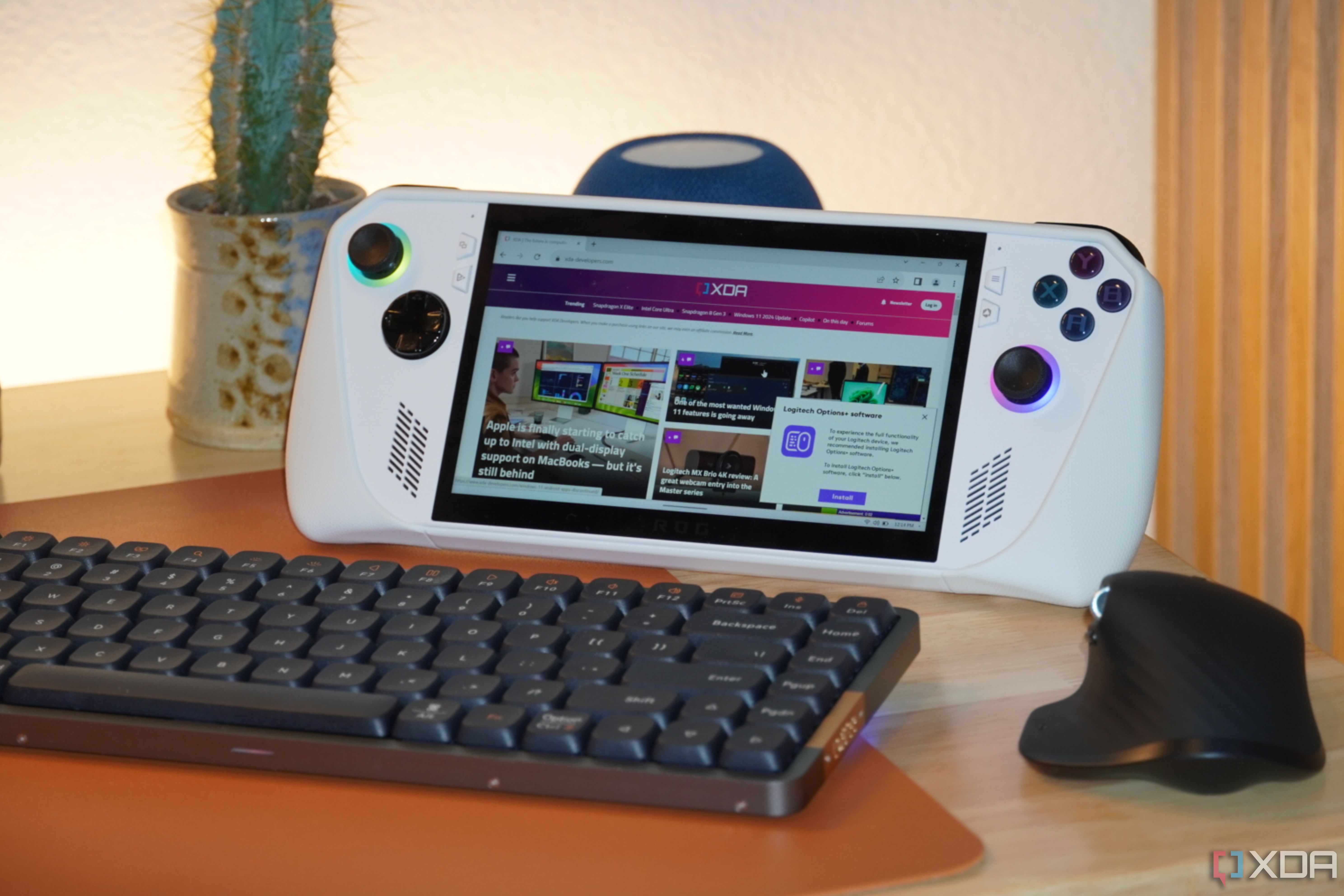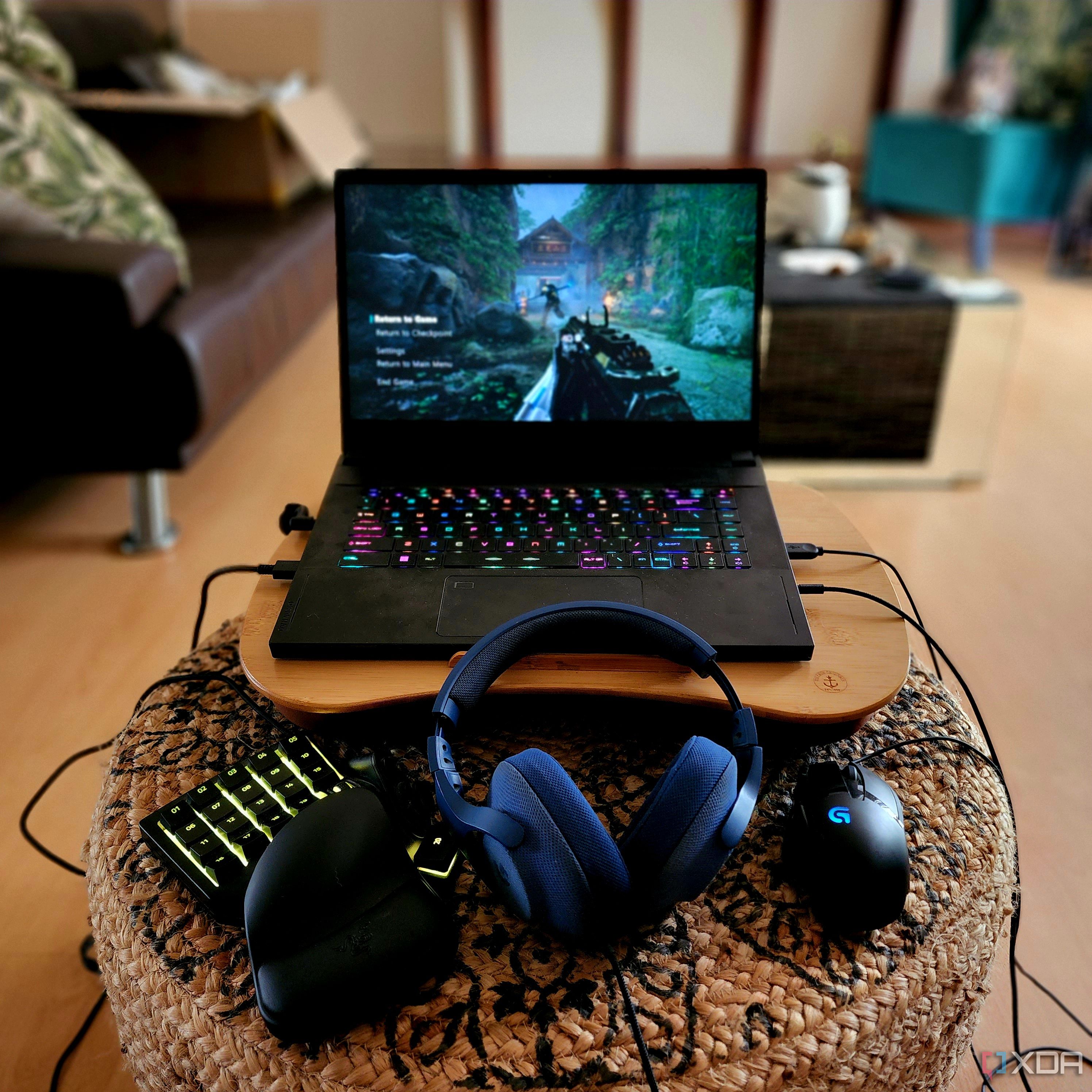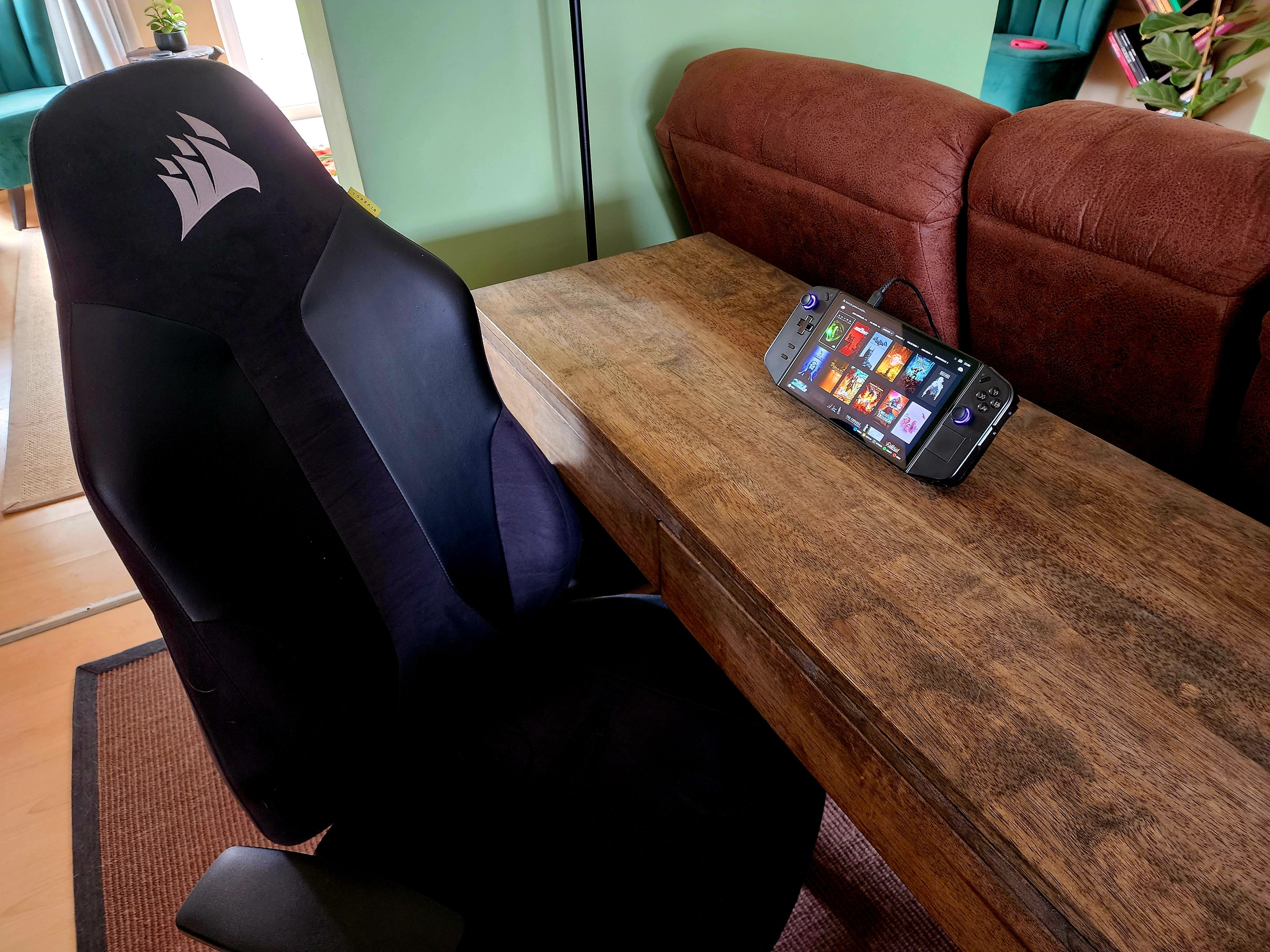
5 reasons to pick a handheld gaming PC over a gaming laptop
There’s arguably been some stagnation at the high-end of desktop gaming hardware over the past few years, but when it comes to mobile gaming systems, things have been moving faster than ever. Gaming laptops have come down in price and up in performance, but now handheld gaming PCs are giving them a run for their money. So, if you’re looking for a PC gaming solution that’s not a desktop system, when should you pick a handheld gaming PC over a gaming laptop?
5 You actually want to game on battery
You aren’t doing that on a laptop!
As anyone who owns a gaming laptop will tell you, getting a good mix of performance and battery life can take quite a bit of legwork. Even with their larger batteries, there’s a floor to how low you can push the power consumption and still get a usable amount of play time in demanding 3D titles.
Handheld gaming PCs, on the other hand, do a much better job in this department. With a tuned performance profile, you’ll usually get about 90 minutes of battery play on demanding titles, and older or 2D games can net you much more than that. It’s also trivial to hook up a power bank that will double or triple your play time. Most gaming laptops won’t charge from a power bank, and those that do can’t usually draw enough power to keep their own internal battery from draining.
It’s also worth talking about the subjective experience here. A title like Marvel’s Spider-Man Remastered looks and plays much rougher on a big laptop screen at medium settings and lower frame rates than it does on a seven- or eight-inch handheld. So, although technically the laptop is doing a better job on paper, the subjective look and feel of the game could be less than impressive on the bigger machine when disconnected from the wall. That’s the big point here: you could, in theory, make a laptop as efficient as a gaming handheld, but running the game at such low settings would look much worse on that larger screen.
There are, of course, thin and light gaming laptops such as the MSI Stealth Series or Razer’s 14-inch gaming laptops, but these are so far removed from gaming handhelds in terms of price that the comparison is moot.
4 You only care about gaming
Work should be left at the office anyway
A gaming laptop is still a laptop first and a gaming device second. That’s a good thing if you need to do regular computer stuff on the go. Unlike gaming, these laptops will do web browsing and office apps on battery power without much issue. Obviously, gaming PC handhelds aren’t designed for this, but you can dock them to a monitor and other peripherals when back home to do work stuff or non-gaming tasks. So, if you want to game on the go, but only need to work occasionally when you’re actually at a desk, a handheld might make more sense.
3 You get more gaming bang for your buck
It’s actually a great deal if you think about it
With typical Windows gaming handheld prices at between $500 and $700 (with some exceptions, of course), you’re not going to get anywhere near the same experience on a laptop with a similar price tag. Since these handhelds have dumped all the hardware not strictly needed to game, the total budget has been allocated to making games run and look great.
Thanks to their larger screens, laptops also need more relative GPU power to look as good to the eye. You can hide a lot of missing details when playing on a seven-inch screen! To get a similar subjective experience, you’d need to spend north of $1000 on a gaming laptop, though of course there are always great deals to be had if you know where to look.
If you’re looking at the Steam Deck, the value proposition gets even better, assuming that you’re okay with the current limitations of SteamOS compared to gaming on Windows.
2 You play with a controller anyway
Most games are great with a controller
If you’re fine playing your PC games using a controller, then going for a handheld might be a good option for you. Not to mention that you’re not really playing your gaming laptop on the go anyway, so you could similarly use a mouse and keyboard with a handheld if you were so inclined. Honestly, gaming laptops don’t have any particular advantage here. Heck, the Lenovo Legion Go even has a built-in mouse solution if you really want to play games mouse and keyboard style on a random park bench.
1 You need to travel light
Even the smallest laptops can’t compete
Gaming laptops are small compared to a desktop gaming PC, but absolutely enormous next to a handheld gaming PC. For gaming laptops in particular, the power supply and other peripherals you need to take with you add up fast. It’s not uncommon to need a whole backpack. Just look at how much stuff I need to actually use my MSI Stealth (which is already thin and light for a gaming laptop) on my actual lap.
Source: Sydney Butler / XDA
Now compare that to my Lenovo Legion Go setup.
Source: Sydney Butler / XDA
I don’t know about you, but I know which one I grab nine times out of ten when leaving the house, or just moving around from the lounge to my bedroom, and it’s not the laptop!
